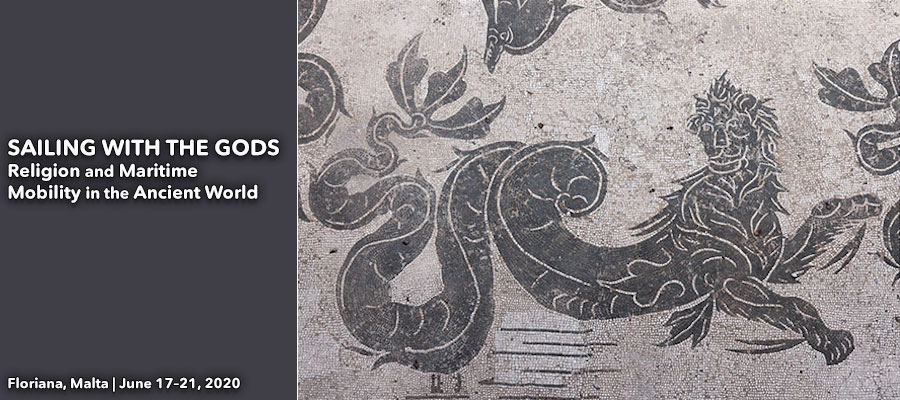Sailing with the Gods: Religion and Maritime Mobility in the Ancient World, Floriana, Malta, June 17–21, 2020
Ritual practices dedicated to maritime success appear across a wide span of human cultural history, from the Mediterranean to the North Sea, Southeast Asia across the Pacific to the west coast of the Americas. Culturally-constructed seafaring rituals could be seen as spiritual or superstitious, and respond to the combination of risk and profit endemic in even short voyages by water. Maritime religion infuses all water-borne contact across cultural boundaries; the crafts of those who build rafts, canoes, and sailing vessels; navigational skills which may reach back to ancestors who have faded into cultural legend; and myriad mnemonic and naming strategies extending to littoral markers and celestial patterns. Mythic and ritual responses are accordingly complex, ranging from apotropaia to the divine authorization of civic structures, shipboard shrines and functional epithets which could link divinities, heroes and nearly-deified rulers to the control of the waves and winds.
Studies of religion and maritime mobility are often framed within individual cultural contexts, but this international conference seeks to bring together scholars from across a range of disciplines and historical periods, from prehistoric to the eighth century CE, to address critical questions in method and theory relevant to religion in the context of maritime mobility. Among these questions are:
- What are the benefits and limitations of the types of data available for the investigation of ancient seafaring – myths, legends and histories, the excavations of harbors and shipwrecks, the iconography of sea gods, the analysis of artifacts?
- What is the range of critical frameworks – from network analyses to iconography – appropriate for these data sets?
- How do data from ports and land-based institutions complement or even contradict evidence from seagoing vessels?
- How can we de-essentialize the question of ‘maritime ritual’; what might the role of cross-cultural or cross-chronological studies contribute to this end?
- How might the studies of maritime ritual offer fresh questions for the analysis of Christianity vis-à-vis traditional Greco-Roman and Mediterranean religions?
- How do Judaism, Christianity and/or Islam deploy maritime religion in different yet complementary ways to one another, or to polytheistic traditions such as Indian or Chinese religions?
- How do the divine protections sought for religiously-motivated journeys such as pilgrimage compare with the day-to-day appeal to the gods on seafaring vessels?
